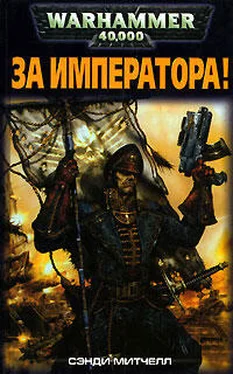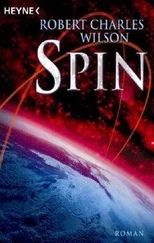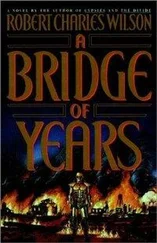"That's the point, though, Jase. There is no need. I was always a little underutilized at Perihelion."
"Bored, you mean?"
"It might be nice to feel useful for a change."
"You don't feel useful? If not for you I'd be in a wheelchair."
"That wasn't me. That was Wun. All I did was push the plunger."
"Hardly. You saw me through the ordeal. I appreciate that. Besides… I need someone to talk to, someone who isn't trying to buy or sell me."
"When was the last time we had a real conversation?"
"Just because I weathered one medical crisis doesn't mean there won't be another."
"You're a Fourth, Jase. You won't need to see a doctor for another fifty years."
"And the only people who know that about me are you and Carol. Which is another reason I don't want you to leave." He hesitated. "Why not take the treatment yourself? Give yourself another fifty years, minimum."
I supposed I could. But fifty years would carry us deep into the heliosphere of the expanding sun. It would be a futile gesture. "I'd rather be useful now."
"You're absolutely determined to leave?"
E.D. would have said, Stay. E.D. would have said, It's your job to take care of him.
E.D. would have said a lot of things.
"Absolutely."
Jason gripped the wheel and stared down the road as if he had seen something infinitely sad there. "Well," he said. "Then all I can do is wish you luck."
* * * * *
The day I left Perihelion the support staff summoned me into one of the now seldom-used boardrooms for a farewell party, where I was given the kind of gifts appropriate to yet another departure from a dwindling workforce: a miniature cactus in a terracotta pot, a coffee mug with my name on it, a pewter tie pin in the shape of a caduceus.
Jase showed up at my door that evening with a more problematic gift
It was a cardboard box tied with string. It contained, when I opened it, about a pound of densely printed paper documents and six unlabelled optical memory disks.
"Jase?"
"Medical information," he said. "You can think of it as a textbook."
"What kind of medical information?"
He smiled. "From the archives."
"The Martian archives?"
He nodded.
"But that's classified information."
"Yes, technically, it is. But Lomax would classify the phone number for 911 if he thought he could get away with it. There may be information here that would put Pfizer and Eli Lilly out of business. But I don't see that as a legitimate concern. Do you?"
"No, but—"
"Nor do I think Wun would have wanted it kept secret. So I've been quietly doling out little pieces of the archives, here and there, to people I trust. You don't have to actually do anything with it, Tyler. Look at it or ignore it, file it away—fine."
"Great. Thanks, Jase. A gift I could be arrested for possessing."
His smile widened. "I know you'll do the right thing."
"Whatever that is."
"You'll figure it out. I have faith in you, Tyler. Ever since the treatment—"
"What?"
"I seem to see things a little more clearly," he said.
He didn't explain, and in the end I tucked the box into my luggage as a kind of souvenir. I was tempted to write the word mementos on it.
* * * * *
Replicator technology was slow even by comparison with the terraforming of a dead planet. Two years passed before we had anything like a detectable response from the payloads we had scattered among the planetesimals at the edge of the solar system.
The replicators were busy out there, though, barely touched by the gravity of the sun, doing what they were designed to do: reproducing by the inch and the century, following instructions written into their superconductive equivalent of DNA. Given time and an adequate supply of ice and carbonaceous trace elements, they would eventually phone home. But the first few detector satellites placed in orbit beyond the Spin membrane dropped back to Earth without recording a signal.
During those two years I managed to find a partner (Herbert Hakkim, a soft-spoken Bengali-born physician who had finished his internship the year Wun visited the Grand Canyon), and we took over a San Diego practice from a retiring GP. Hakkim was frank and friendly with patients but he had no real social life and seemed to prefer it that way. We seldom got together outside office hours, and I think the most intimate question he ever asked me was why I carried two cell phones.
(One for the customary reasons; the other because the number assigned to it was the last one I'd given Diane. Not that it ever rang. Nor did I attempt to contact her again. But if I had let the number lapse she would have had no way of reaching me, and that still seemed… well, wrong.)
I liked my work, and by and large I liked my patients. I saw more gunshot wounds than I might once have expected, but these were the hard years of the Spin; the domestic trend-lines for murder and suicide had begun to arc toward vertical. Years when it seemed like everyone under thirty was wearing some kind of uniform: armed forces, National Guard, Homeland Security, private security; even Home Scouts and Home Guides for the intimidated products of a dwindling birth rate. Years when Hollywood began to churn out ultraviolent or ultrapious films in which, however, the Spin was never explicitly mentioned; the Spin, like sex and the words describing it, having been banned from "entertainment discourse" by Lomax's Cultural Council and the FCC.
These were also the years when the administration enacted a raft of new laws aimed at sanitizing the Martian archives. Wun's archives, according to the president and his congressional allies, contained intrinsically dangerous knowledge that had to be redacted and secured. Opening them to the public would have been "like posting plans for a suitcase nuke on the Internet." Even the anthropological material was vetted: in the published version, a Fourth was defined as "a respected elder." No mention of medically mediated longevity.
But who needed or wanted longevity? The end of the world was closer every day.
The flickers were evidence of that, if anyone needed proof.
* * * * *
The first positive results from the replicator project had been in for half a year when the flickers began.
I heard most of the replicator news from Jase a couple of days before it broke in the media. In itself, it was nothing spectacular. A NASA/Perihelion survey satellite had recorded a faint signal from a known Oort Cloud body well beyond the orbit of Pluto—a periodic uncoded blip that was the sound of a replicator colony nearing completion. (Nearing maturity, you might say.) Which appears trivial unless you consider what it means: The dormant cells of an utterly novel, man-made biology had alighted on a chunk of dusty ice in deepest space. Those cells had then begun an agonizingly slow form of metabolism, in which they absorbed the scant heat of the distant sun, used it to separate a few nearby molecules of water and carbon, and duplicated themselves with the resulting raw materials.
Over the course of many years the same colony grew to, perhaps, the size of a ball bearing. An astronaut who had made the impossibly long journey and knew precisely where to look would have seen it as a black dimple on the rocky/icy regolith of the host planetesimal. But the colony was fractionally more efficient than its single-celled ancestor. It began to grow more quickly and generate more heat. The temperature differential between the colony and its surroundings was only a fraction of a degree Kelvin (except when brief reproductive bursts pumped latent energy into the local environment), but it was persistent.
More millennia (or terrestrial months) passed. Subroutines in the replicators' genetic substrate, activated by local heat gradients, modified the colony's growth. Cells began to differentiate. Like a human embryo, the colony produced not merely more cells but specialized cells, the equivalent of heart and lungs, arms and legs. Tendrils of it forced themselves into the loose material of the planetesimal, mining it for carbonaceous molecules.
Читать дальше












